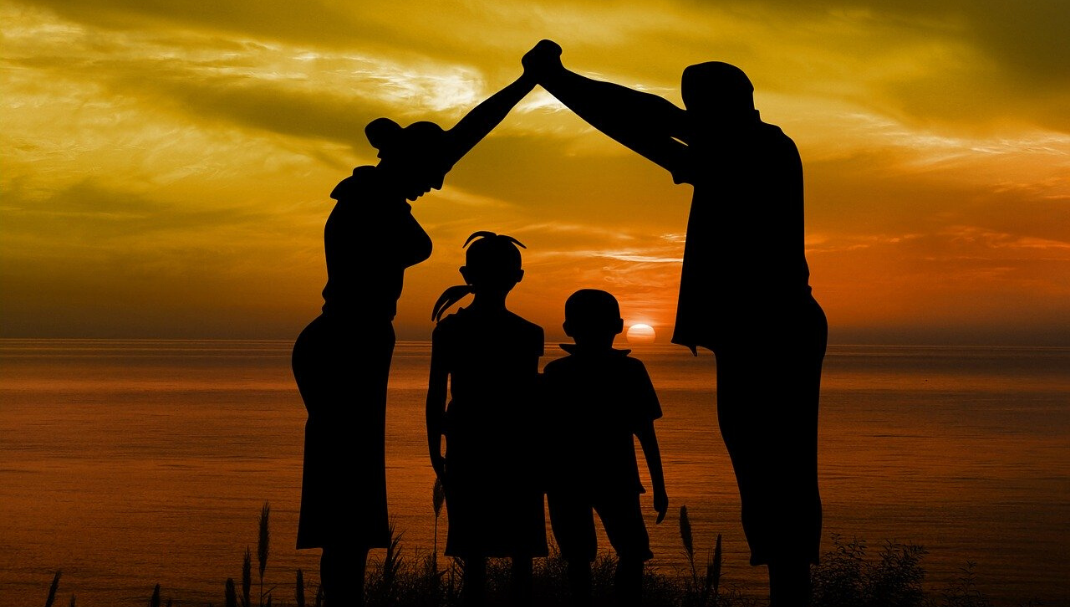John Tolley, April 6, 2020
Financially, psychologically and emotionally, families across the nation are suffering the grim consequences of the COVID-19 pandemic. 30-40% of the American economy has ground to a halt and unemployment numbers have skyrocketed.
For many mired in this situation, bereft of income and beset by bills and expenses, hope can seem distant. Yet there is cause for optimism too, as families and communities rally together while apart to create networks of strength and support.
Recently, we had a chance to interview University of Wisconsin sociologist Sarah Halpern-Meekin. Her work examines the social and emotional toll taken on low-income families, in good times and bad. Halpern-Meekin spoke about how families, despite their many hardships, can support each other and how we can all affect positive change, monetarily, emotionally and through political action, for our neighbors.
(This interview was edited for length and clarity)
With everything people are going through, with the dire financial situation the coronavirus has put us in, how do you think families can best support each other in this situation?
That's a really difficult question because when it comes to the financial situation, a lot of families are going to be in really dire circumstances and they're not in a situation to help each other. It typically tends to be families who are more financially-advantaged who have relatives who are more financially advantaged. So, the people who are best positioned to help are less likely to have those relatives to need the most help financially.
I think something that we can all do for each other is provide social and emotional support. That doesn't necessarily put food on the table and get the rent paid, but we still all have really deep core human needs for connecting and relating to other people, feeling supported, understood and sharing our struggles, and having other people hear that and affirm that our feelings are normal. Families can do that for one another and friends can do that for one another, whether that?s from us six feet away from each other or over the phone or electronically through social media.
 How can parents best approach communicating with kids about finances and family circumstances?
How can parents best approach communicating with kids about finances and family circumstances?
Parents should be talking to their kids about money in age-appropriate ways all the time. Hopefully, the first conversations about finance are not just occurring during a crisis. So, not giving kids more information than they're developmentally-ready for, but helping kids to understand that things do cost money and that all families make decisions about what they can and can't and are willing and unwilling to spend money.
Those conversations can be ongoing and can certainly be going on right now. Don?t scare kids if money's tight, but tell them ?We need to make wise decisions right now.? Then for families who are more financially comfortable, if they're considering making a donation to support others, they can include their kids in those conversations. Their kids can be part of that awareness that part of having money is making decisions about where it goes and when it's important to spend and important to save.
What's the best way to support members of our communities across the United States that need immediate help?
There are great things that we can all do as individuals by coming together and donating to nonprofits in our community that support families around us. But another thing that's really important is that we can be more powerful all together when we act through our government. So, even if you're not looking to get assistance from the government, make it clear to elected representative what your priorities are and what you expect from them to do for people in your community who are in need is part of the way we can step up for each other now.
Are there any tips or words of advice you have for families who are struggling to get through this?
I think knowing that they're not alone in those struggles, that everyone is struggling now in their own ways. That might look different for different people, but making sure that people reach out and ask for help, whether that's asking for financial help or making sure that when you're at the end of your rope, because you've been in the house with your kids by yourself for several weeks, that you reach out and you get support because there are lots of people who want to help one another and sometimes it just takes asking for that help to get it.







